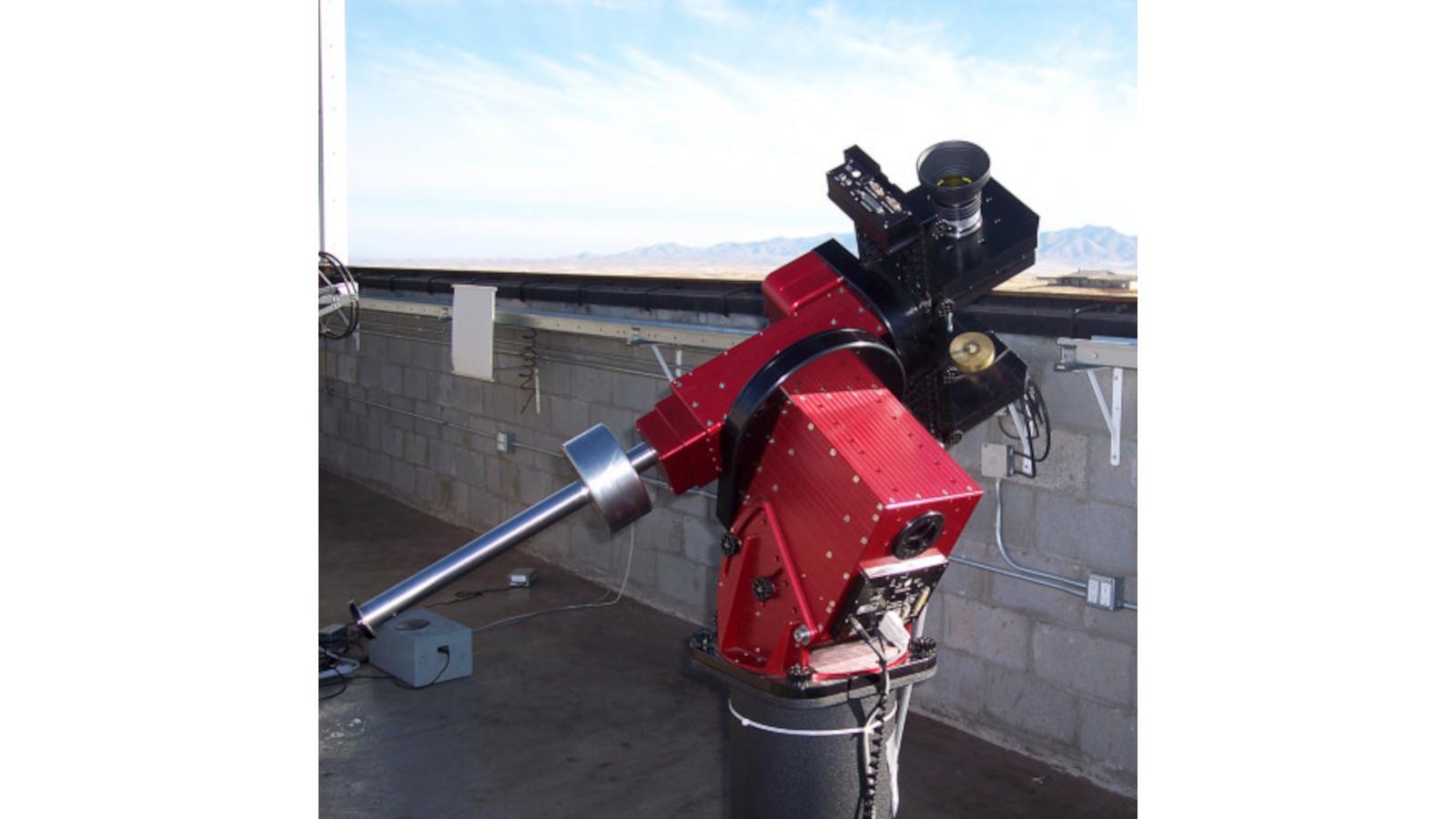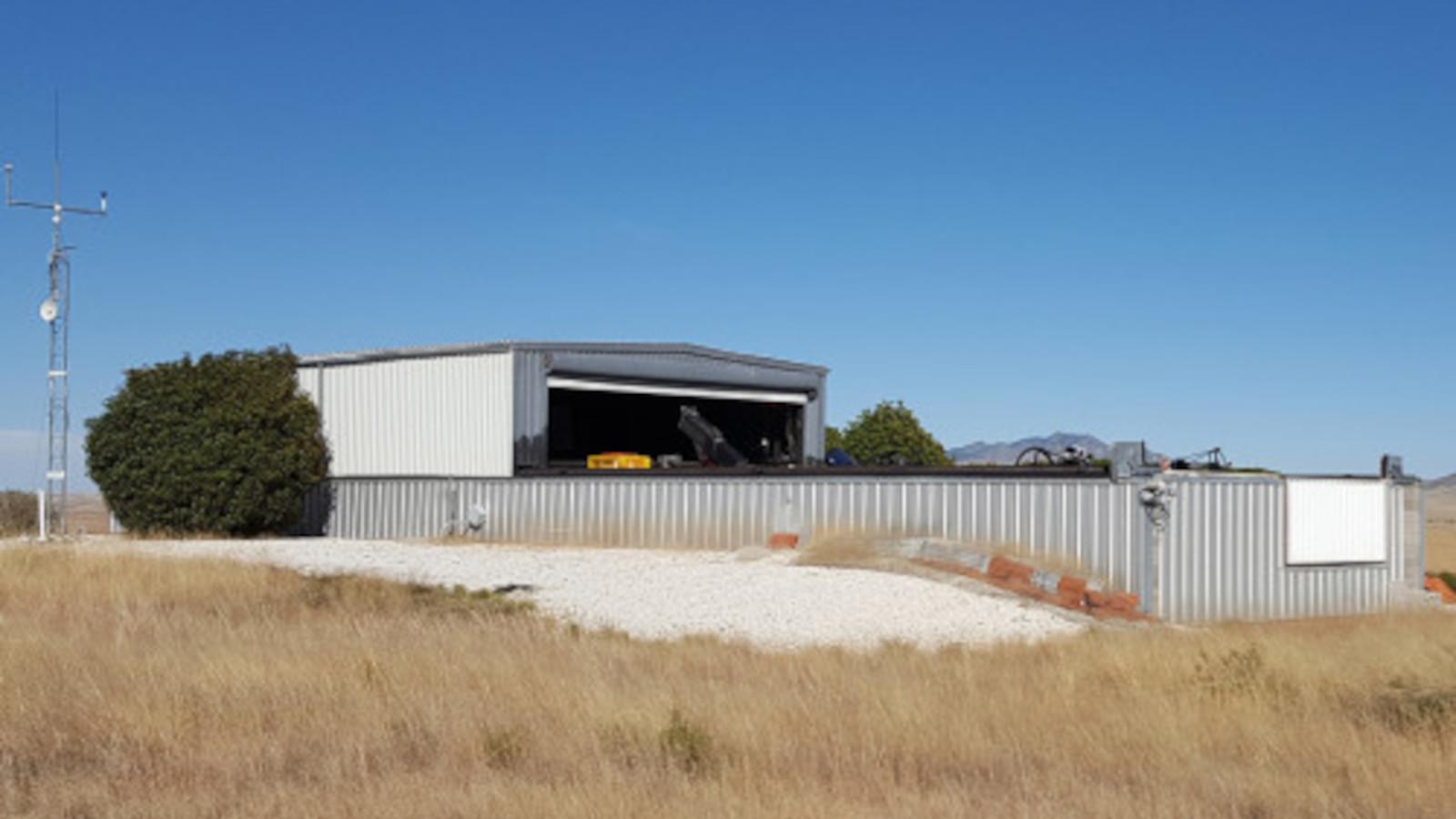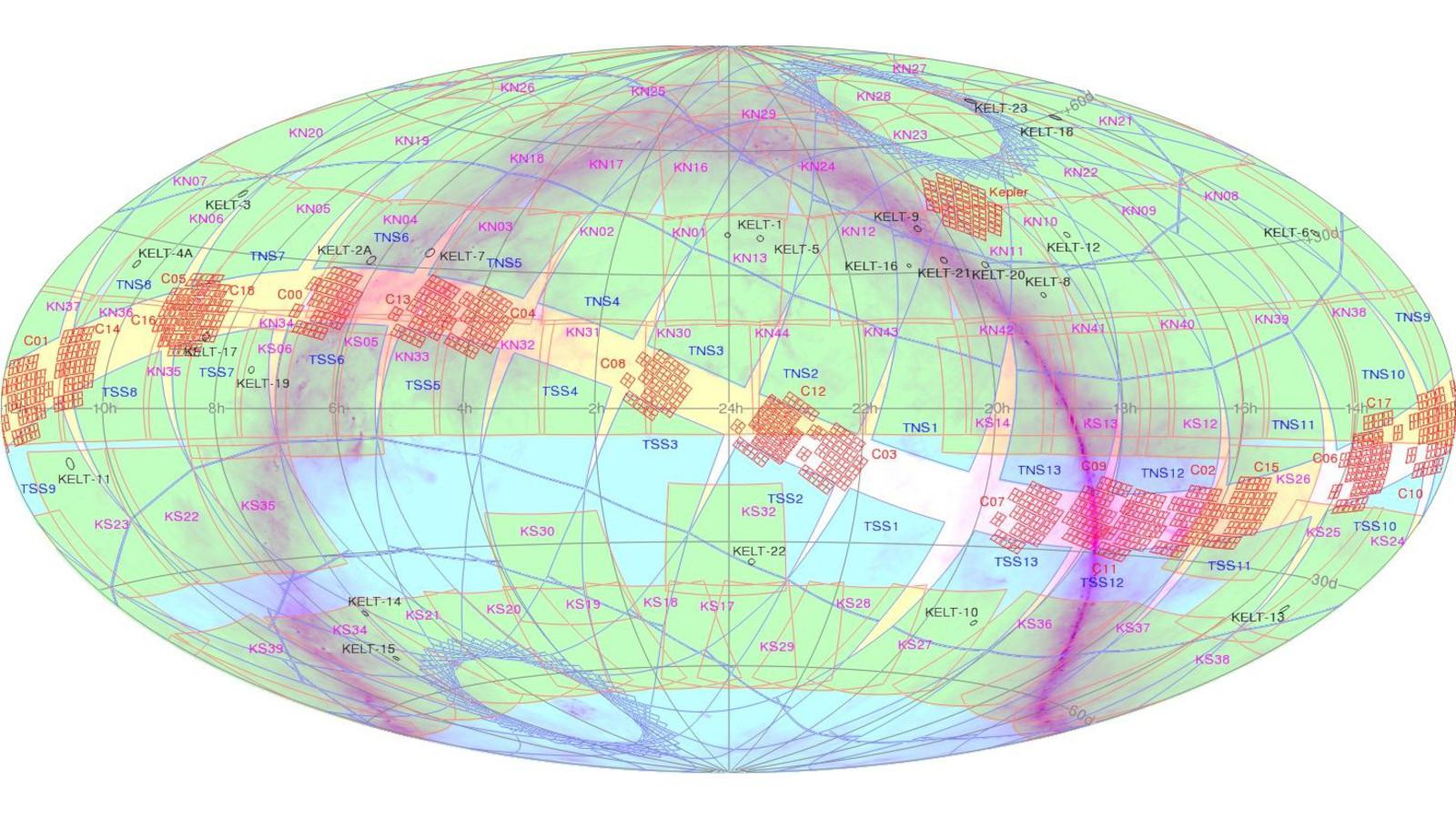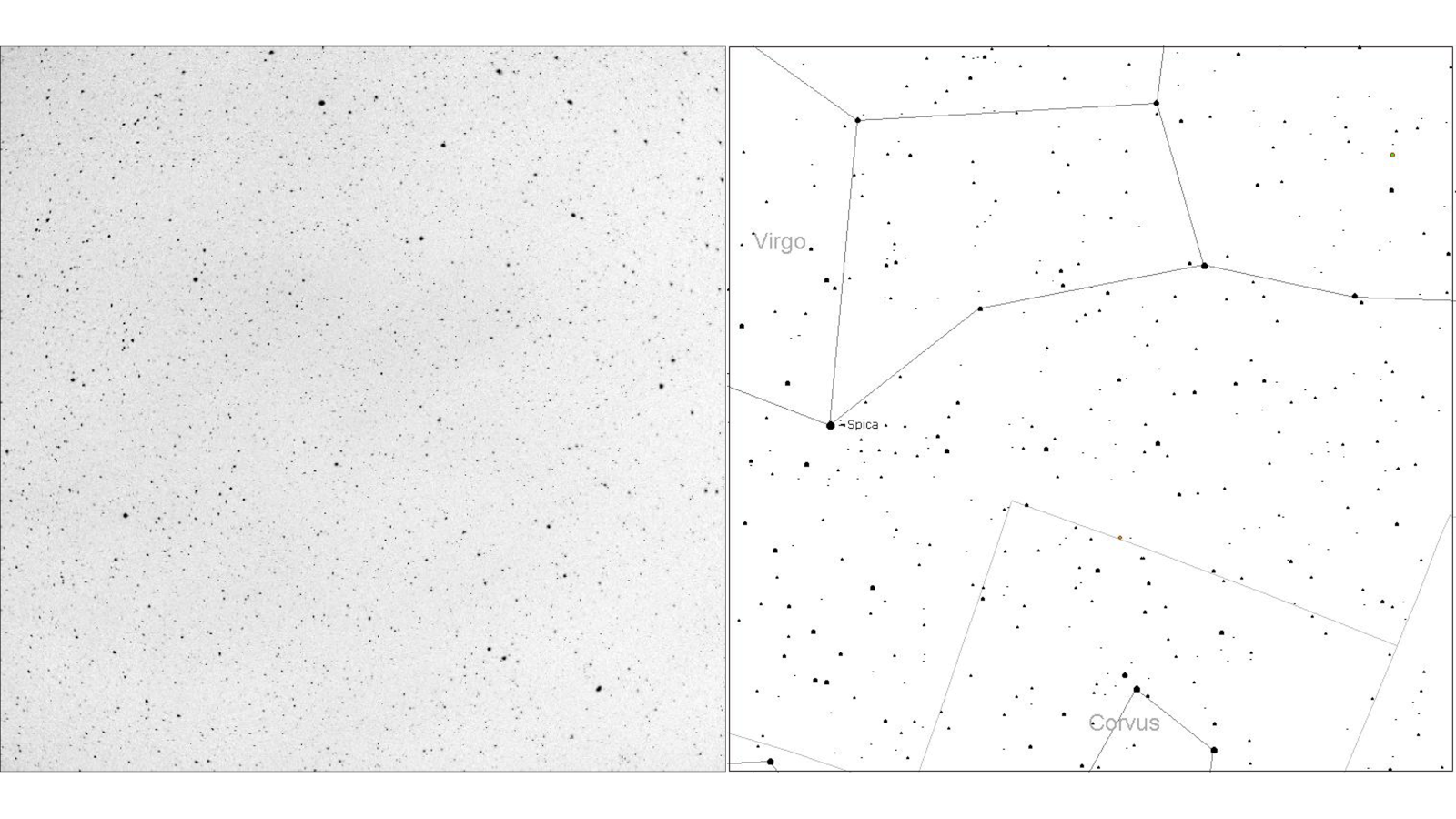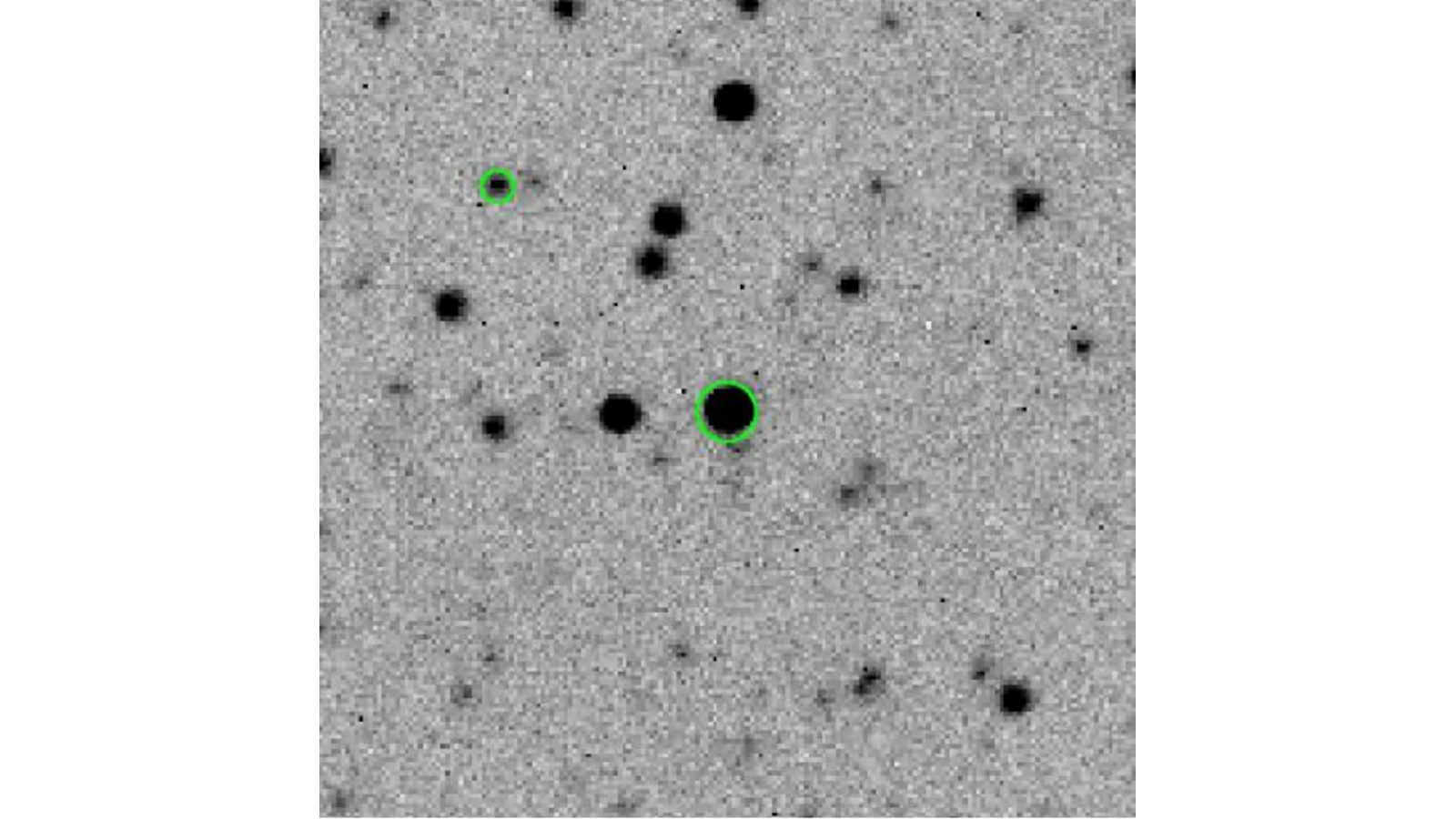Kilodegree Extremely Little Telescope (KELT)
The Kilodegree Extremely Little Telescope (KELT) project is a small robotic wide-field telescope designed to survey for transiting exoplanets orbiting bright stars. The KELT telescope is a commerical Mamiya camera lens imaging onto a 4Kx4K CCD on a Paramount ME robotic telescope mount. KELT operated at Winer Observatory near Sonoita, Arizona. Each KELT image was 26x26-degrees on a side, and the automated survey covered 25% of the northern sky each clear night, observing stars in the range of 8<V<10 magnitude. KELT was the core of OSU graduate student Joshua Pepper's PhD dissertation, and was OSU's first robotic telescope project, followed by DEMONEX and DEMONEXT. It operated from 2008 until 2020.
KELT was renamed KELT-North when it was joined in 2008 by KELT-South deployed at the South African Astronomical Observatory by a Vanderbilt team led by then-postdoc Joshua Pepper. Jointly KELT north and south surveyed the entire sky from 2008 until 2020, ultimately discovering 26 transiting exoplanets around bright stars, including KELT-9b which remains the hottest known hot Jupiter discovered to date.
Instrument Specification
- Project type: Robotic Telescope System
- Telescope: Mamiya 645 80mm f/1.9 lens (42mm aperture)
- Mount: Paramount ME
- CCD Camera: Apogee AP16E 4096x4096
- Field of View: 26 x 26 degrees
- Filters: Kodak Wratten No. 8 red-pass filter
- Observatory Site: Winer Observatory, Sonoita, AZ, USA
- Years active: 2004-2020
- References: Pepper et al., 2007, PASP, 119, 923; Pepper, Stassun, & Gaudi, 2018 in Handbook of Exoplanets
Instrument Facts
- KELT was built as part of the OSU PhD dissertation of Joshua Pepper
- KELT was the first robotic telescope system developed at OSU
- KELT was renamed KELT-N when the southern KELT system was deployed in South Africa in 2008
- The KELT project eventually discovered 26 transiting exoplanets, including KELT-9b, the hottest-known exoplanet
- KELT was retired in 2020 and returned to OSU.
Instrument Team
Joshua Pepper (Project Lead)
Richard Pogge (PhD advisor)
Darren DePoy (PhD co-advisor)
Jennifer Marshall (hardware systems)
Robert Siverd (KELT software)
Mark Trueblood (Winer Observatory)
Patricia Trueblood (Winer Observatory)

